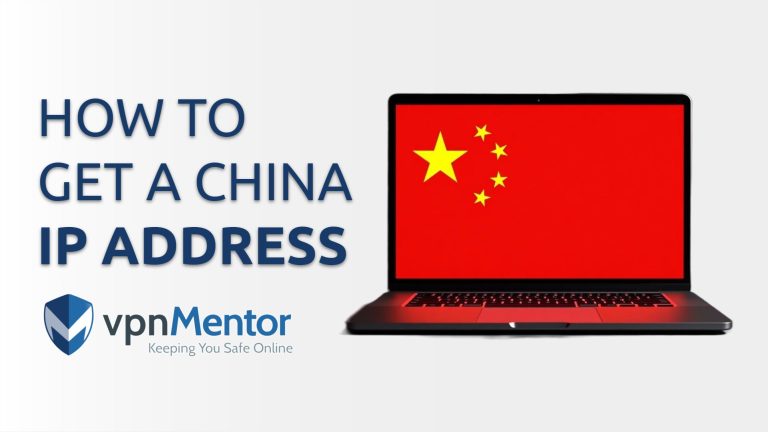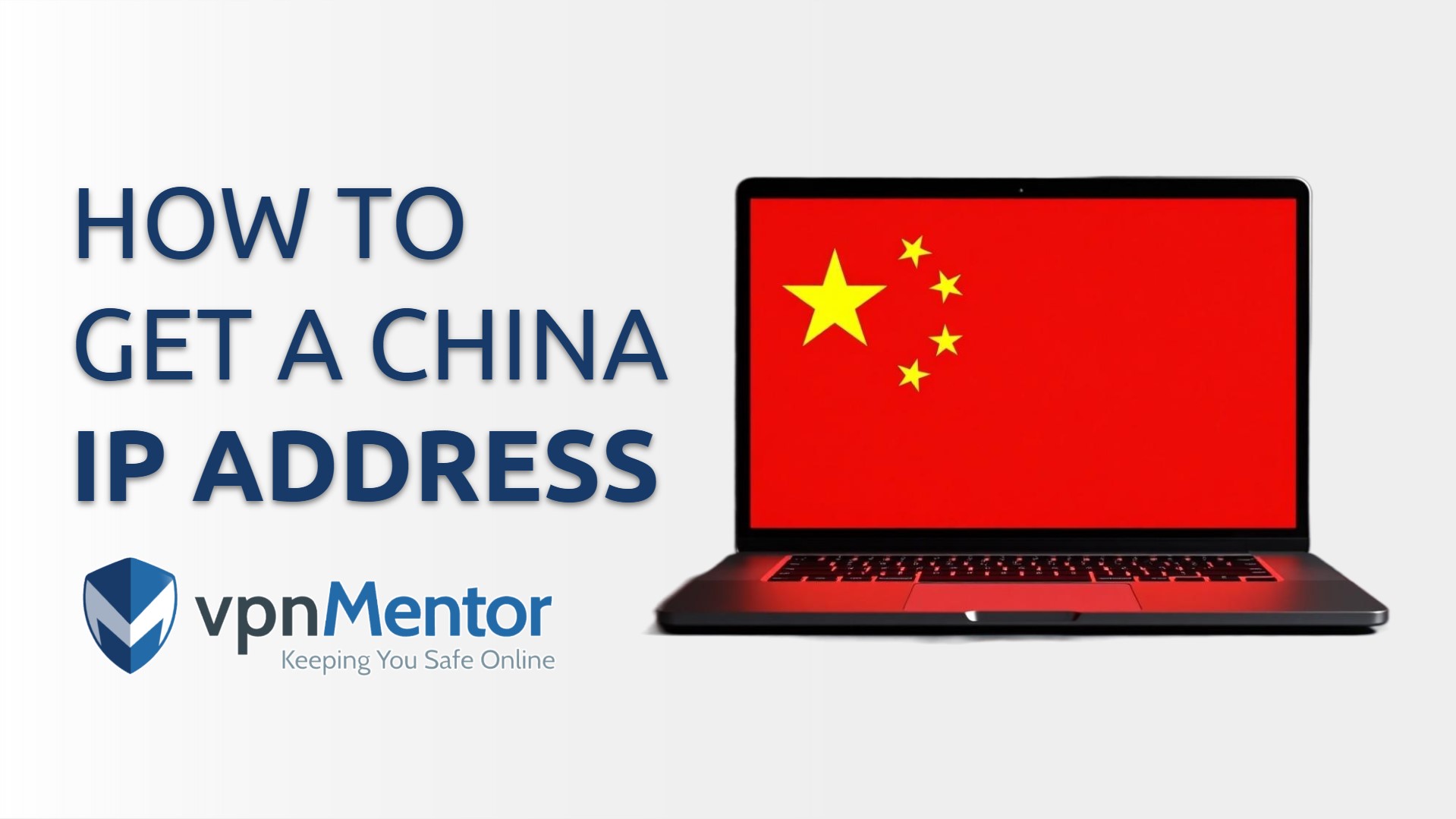How To Get a Chinese IP Address From Anywhere in 2025
The easiest and safest way to get a Chinese IP address is with a VPN. Unfortunately, most VPNs struggle to provide secure IP addresses for China. Only a few offer physical servers in mainland China due to data retention laws. In addition, traffic that flows through the Great Firewall (GFW) is monitored, which risks your privacy.
Despite restrictions, 21.3% of Chinese internet users still use a VPN for online security and privacy1. But even some people outside of China need to get a China IP. Which VPNs can give you a China IP address? A premium VPN with Hong Kong and Macau servers can provide a Chinese IP address from anywhere without compromising security.
China is also one of the strictest countries when it comes to online freedom, with a score of 9/1002 (Freedom House). So, a VPN is essential to safely access Chinese streaming or social media sites like iQIYI, CNTV, Bilibili, or WeChat. With strong encryption and the ability to get a private Chinese IP, a VPN helps you avoid snooping and network restrictions.
How Do I Get a China IP Address?
- Download a VPN.
- Connect to a server.
Choose a server in Hong Kong or Macau for the best balance of speed and stability with your Chinese IP address. - Start browsing.
Now, you can visit iQIYI or the local WeChat Web to socialize, stream, or play games with an encrypted connection.
How To Get a Chinese IP Address With a VPN — 2025 Guide
VPNs with servers in Hong Kong and Macau allow you to get a private and secure Chinese IP address. As these technically fall outside the Great Firewall, they are also less prone to interruptions or slowdowns due to anti-VPN measures.
Here’s how to set up a VPN to get a private Chinese IP in a few simple steps:
1. Get a VPN
Choose a VPN with secure servers in Hong Kong and/or Macau. These will provide a Chinese IP address that’s free from the connection monitoring and restrictions of mainland China. Alternatively, some VPNs offer virtual servers for China that are physically located in a nearby country, like Singapore.
2. Configure Your VPN Settings
Adjust your VPN settings to maximize connection stability with your China IP. Because of the severe surveillance and restrictions, we recommend enabling these settings before you connect to a server. Even though Hong Kong and Macau are outside of the GFW and its data monitoring, I recommend enabling the kill switch to prevent data leaks if your VPN disconnects unexpectedly.
Most VPNs also allow the app to decide which protocol is the best option based on your network conditions — this option is usually listed as Automatic. If your app has a separate obfuscation or “stealth mode” feature, enable it. Some platforms might detect VPN traffic, so enabling obfuscation helps maintain secure access.
3. Connect to a Server in China
Select a server in Hong Kong or Macau for optimal performance. These locations offer the best balance of speed and reliability for securely accessing Chinese platforms, and they’re not subject to the restrictions of the GFW.
4. Test Your Chinese IP
Use an IP checking tool to verify you have a Chinese IP address. Your IP location should show as Hong Kong, Macau, or China, depending on which server you chose. If you see your real location and/or your regular IP, clear your browser cache and cookies, then try reconnecting to the VPN server.
 Rerun the test before and after connecting the VPN to ensure your IP changed
Rerun the test before and after connecting the VPN to ensure your IP changed
5. Go Online Securely
You can now go online safely with your new secure Chinese IP address. Our recommended VPNs all work smoothly with popular streaming platforms like iQIYI and Youku, and you'll be able to see regional search results and services. Remember to keep your VPN connected while browsing to maintain privacy and prevent connection drops.
Alternative Methods to Get a China IP Address
Can I get a China IP address without a VPN? Yes, proxies are a popular backup option to VPNs — according to ENVmedia, proxy usage in China is above 30%4. Here’s a quick look at some VPN alternatives.
- Proxy servers. These provide basic IP address changes but offer minimal security with no encryption. Free proxies often have slow speeds and unreliable connections, while paid proxies typically charge based on data usage. For more information, take a look at our guide to the best proxies.
- Shadowsocks and V2Ray. These proxy tools are typically used inside China but can be configured to access a Chinese IP abroad. However, they require technical setup, lack built-in security, and aren’t as user-friendly or reliable as commercial China VPNs, making them better suited for advanced users.
- Virtual private servers (VPS). Renting a server in Hong Kong or Macau through services like Alibaba provides a dedicated IP address. However, it won’t typically encrypt your data like a VPN, so you may have to manually configure an OpenVPN connection.
- Tor browser with China exit nodes. This is a free option that routes traffic through multiple nodes for anonymity. However, connections are typically slow and unstable, making it impractical for streaming or regular browsing. It can also cause suspicion with your ISP since Tor can be used to access the dark web.
Why Don't VPNs Have Servers in Mainland China?
China heavily restricts VPNs and frequently shuts down unauthorized physical servers within the mainland. As a result, many VPNs use virtual Chinese servers. These servers provide Chinese IP addresses but are physically located outside of China. This way, you can securely access your Chinese accounts from anywhere without being subjected to Chinese jurisdiction and legal constraints.
Any VPN provider with physical servers in mainland China must:
- Register with Chinese authorities
- Share user data when requested
- Allow government monitoring
- Follow local censorship rules
To protect user privacy, most reputable VPNs use servers in Hong Kong or Macau instead, which operate under the “one country, two systems” principle. This framework has historically allowed these regions to have more relaxed internet regulations compared to mainland China, making them attractive locations for VPN servers.
Plus, because Hong Kong and Macau are physically close to mainland China, they’re a great choice if you’re looking to get a secure China IP address from within the country. That’s because your data doesn’t have as far to travel, so you’ll be able to browse without interruptions or stream with no buffering. You’ll get a lower latency connection, which is ideal if you’re a fan of games like Perfect World, Genshin Impact, or Honkai Star Rail.
Physical vs Virtual Chinese Servers
There are many potential trade-offs to consider when choosing between physical and virtual Chinese servers. You need to think about the legal risk, IP accuracy, and service reliability before you choose the best one for you. Here’s a table summing up the most important differences and similarities:
| Feature | Physical Servers (Hong Kong/Macau) | Virtual Servers (China IP From Abroad) |
| Server Location | Physically hosted in Hong Kong or Macau | Hosted in countries like Singapore, Japan, or the US |
| IP Type | Hong Kong/Macau IP (not mainland China) | Mainland China IP (via geo-routing) |
| Legal Jurisdiction | Outside PRC surveillance laws | Outside China’s jurisdiction |
| Access to Chinese Services | Often works well with streaming, apps, and payments | May work with some services but IPs are more likely to be blocked |
| Speed & Latency | Depends on your distance to the physical server | Depends on your distance to the physical server (may be far from China) |
| Privacy & Data Retention | Not subject to China's data laws | Depends on the host country’s privacy laws |
| Reliability | High — stable and consistent | Varies — may drop or be blocked |
| China Monitoring Risk or Data Request Risk | Low | Very low — no connection to mainland infrastructure |
What Internet Restrictions Exist in China?
China enforces some of the world’s most comprehensive online censorship through its Great Firewall, a system that restricts access to thousands of foreign websites and services. Techniques like IP blocking, DNS poisoning, deep packet inspection, and manual content filtering are used to monitor and limit online activity. There’s a comprehensive list of international websites that are blocked in China, including Google, YouTube, and Facebook.
The Cyberspace Administration of China (CAC) and the Ministry of Industry and Information Technology (MIIT) oversee enforcement and regulation. As tools that may be used to bypass these restrictions, VPNs are tightly regulated — most VPN websites and apps are inaccessible from within China. Officially, only government-approved VPNs may be used, but they are rife with concerns of government surveillance and control.
While not as tightly regulated, many Chinese websites and services are restricted to users within China or those with a Chinese IP. This is largely due to limits on regional licensing agreements and operating jurisdiction. So, popular Chinese streaming platforms like iQIYI, Tencent Video, Youku, and Bilibili, as well as payment systems such as WeChat Pay and Alipay, may be inaccessible to users outside of China or those who don’t have a China IP address.
FAQs on Getting a Chinese IP Address
Is it legal to use a VPN to get a China IP address?
Yes — if you're outside China, there are generally no laws preventing you from using a VPN to get a Chinese IP address and “tunneling into” the Chinese internet. That said, you should always check the laws in your own country — especially if you're in another place where VPN use is regulated (like the UAE, Russia, or Iran).
The enforcement concerns around VPNs apply mostly within mainland China. However, VPNs aren’t explicitly illegal, and there are no reported cases of visitors being punished for using one. Legal action is usually reserved for those who use VPNs for commercial purposes or to access forbidden information. It’s always best to stay cautious and be aware of your local laws. The team and I don’t condone illicit use of VPNs.
Can a VPN let me watch Chinese TV like iQIYI?
Premium VPNs with Hong Kong or Chinese IP servers can securely stream Chinese platforms from anywhere. The key is choosing a VPN with fast speeds that regularly updates its IPs to maintain safe and reliable access. However, your connection stability and streaming quality will depend on a lot of factors, including server hardware, distance to the server, and concurrent users.
How does the Great Firewall of China work?
China's Great Firewall combines automated filtering with manual intervention to restrict online content. These include IP blocking, DNS tampering, and deep packet inspection (DPI) to detect and block VPN traffic.
However, China’s anti-VPN policies are mainly focused on preventing users in China from accessing international content. It’s less concerned with using a VPN to visit Chinese websites from abroad. While IPs from Hong Kong and Macau are generally allowed to access many mainland Chinese services, these countries fall outside of the GFW’s net.
Can I use a free VPN to get a China IP address?
Free VPNs are not recommended for getting Chinese IP addresses. They typically lack the necessary features to provide reliable and secure connections. Most free services have limited server options, slow speeds, and potential security risks. Premium VPNs with money-back guarantees offer a range of servers in or for China, providing better speeds and reliability.


References
- https://www.statista.com/statistics/1367136/china-internet-data-privacy-and-security-user-preferences-and-actions/
- https://freedomhouse.org/country/china/freedom-net/2024/
- https://www.bonafideresearch.com/product/6407493804/china-virtual-private-network-market/
- https://env.media/proxies-beyond-internet-privacy/





Please, comment on how to improve this article. Your feedback matters!